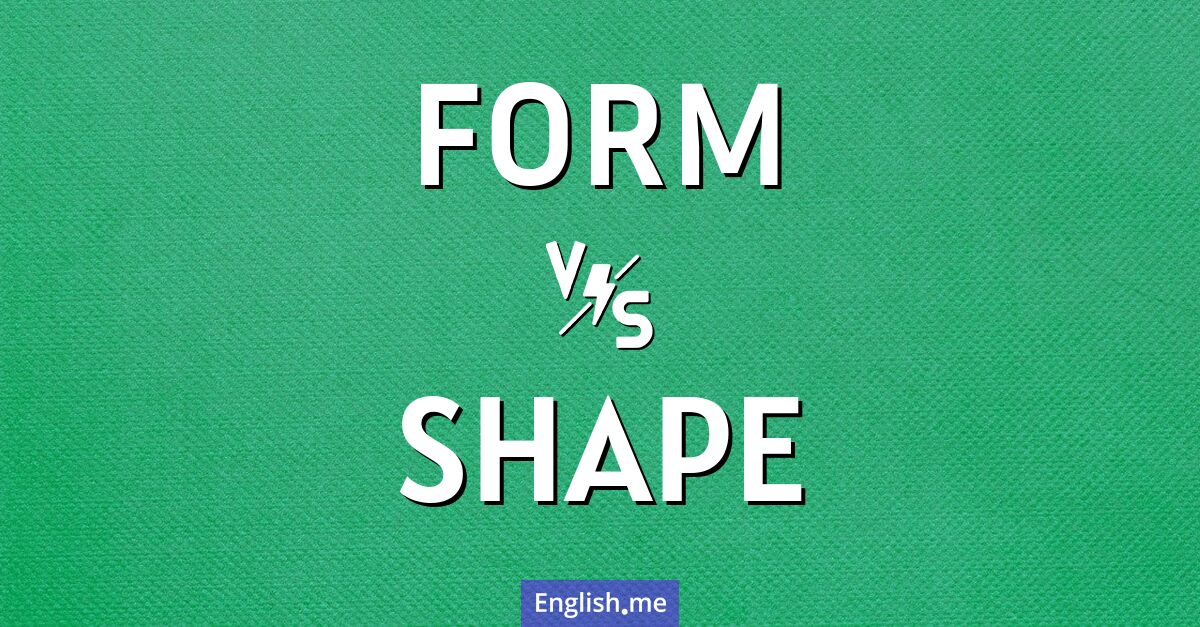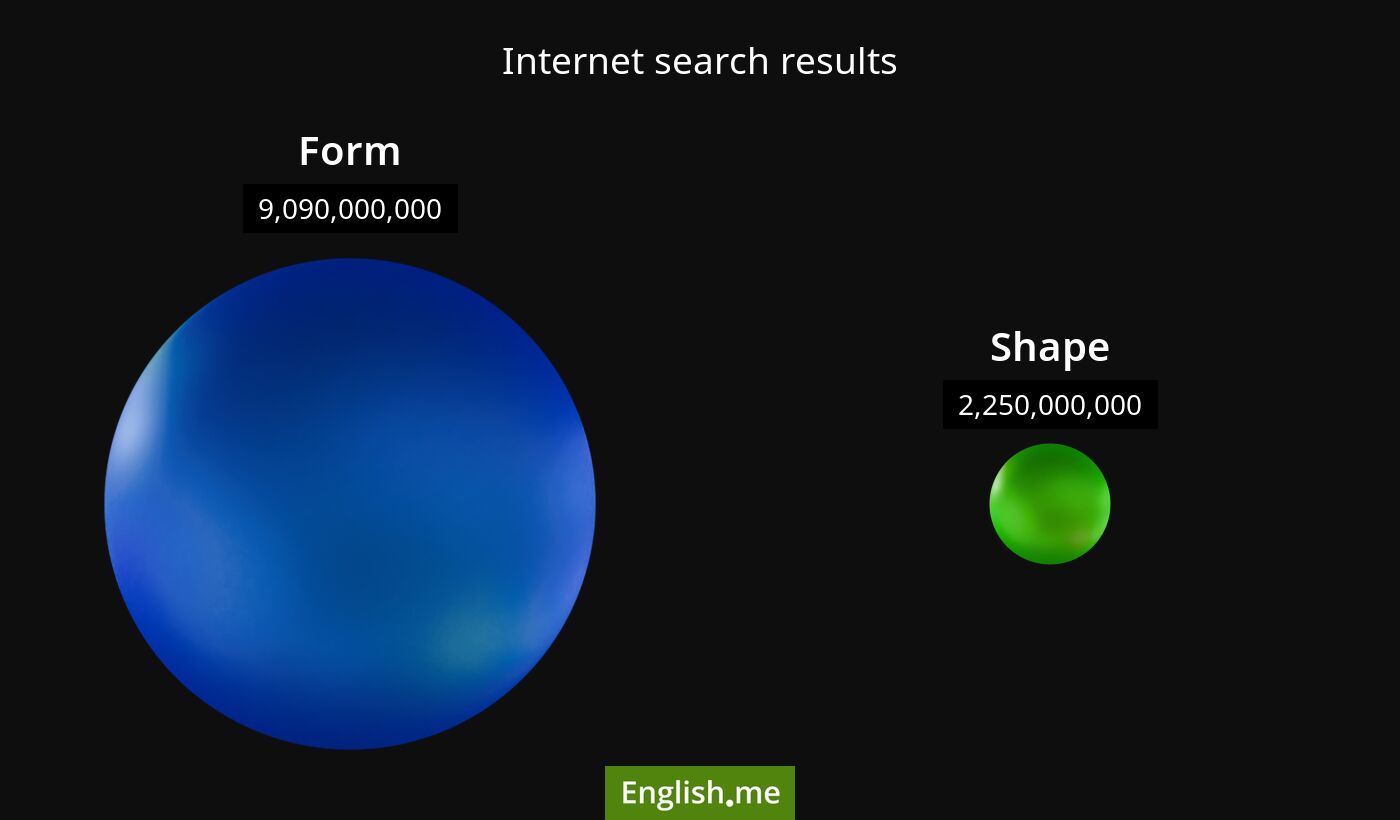"Form" vs. "shape": understanding the difference
Reviewed and edited by  Anwar Kareem 15/12/2024, 09:54
Anwar Kareem 15/12/2024, 09:54
English.me team member

 What is similar?
What is similar?
Both "form" and "shape" refer to the physical appearance or configuration of an object and are used to describe how something looks externally.
 What is different?
What is different?
While "shape" typically refers to the physical or visible appearance of something, "form" can have a broader meaning, including structure, essence, or arrangement in both tangible and intangible contexts. For example, "form" can imply a document, a method, or even a state of being, whereas "shape" focuses on geometry or contour.
 Which one is more common?
Which one is more common?

 Examples of usage
Examples of usage
Form- Please fill out this form and submit it.
- His ideas began to take form after weeks of brainstorming.
- The sculpture has a unique form that captures the artist's vision.
- The cloud took the shape of a dragon.
- He is trying to get back into shape by exercising daily.
- The cookie cutter is in the shape of a star.

 English
English español
español française
française italiano
italiano deutsche
deutsche 日本語
日本語 polski
polski česky
česky svenska
svenska Türkçe
Türkçe Nederlands
Nederlands